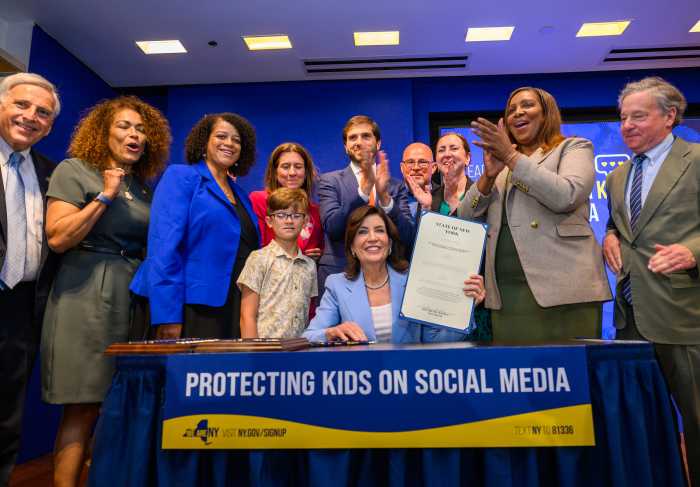As the debates rage on across the country over how much homework is too much, how much is too little, whether kids should have it on the weekends or at all, I as usual stay somewhat inside my little bubble and try to figure what is right for my household.
I am so lucky, then, that I have no issue with the amount of homework my kids get from their nice little public school around the corner, and that they are learning lessons well enough in class to confidently do the assignments at home themselves. Otherwise, we might have a problem.
See, I don’t help my children with their homework — and don’t believe I should. In fact, unless absolutely pressed into service to offer my signature or a fact of family history, I am basically absent when homework is being done. I ask one question only when books and folders shut for the evening: “Did you finish?”
If the answer is yes, I am satisfied. They are in charge, not I, and I think that is the point of homework, that the children, not the parents be the ones who do it.
Sure, I know some square roots, and some of the names of the white men who signed the Declaration of Independence, but the homework is not mine, but theirs. The point of work outside of school is to teach kids to take initiative, to take responsibility and to keep at things long after they’ve given up interest. These are life lessons I am still trying to learn, so they are clearly important to practice early on so that they might become habit.
I am lucky to have a great school around the corner, lucky that my children don’t have learning disabilities that would make it a challenge to leave them be. Because of those things, I can — and do — take a back seat.
When my children whine about doing their homework, I have had two responses: 1) “That’s funny, I always brag how good you are at doing your homework without argument…” 2) “That’s totally fine. That’s between you and your teacher, so you can just explain to them tomorrow that you didn’t want to do it…”
Both responses assume that my kids take pride in their abilities and respect others outside our home. I fight back my own control-freak instincts to hover and prod because I want to ensure that my children’s homework reflects their efforts, not mine.
I do sometimes feel bad that I have left my children to their own devices — especially when I see other children’s outstanding work on the walls of the school. I wonder about my strategy in those moments, like when Oscar’s entry for the “100th Day of School” project — a poster board with 100 paint splotches in 10 different colors — hung sadly next to President Obama’s face perfectly formed out of 100 pennies.
Perhaps I should have gotten involved and showed my kids that sometimes the could work harder on things. But then I remembered my own reasoning for doing what I do: they have to learn to push themselves.
I try to model hard work in my own endeavors, and point out the benefits of doing so as much as possible to encourage them, but I do not want them to get in the habit of waiting for me to do their own work. If I wanted them to learn the guitar, I can’t play the chords for them, can I?
It’s not just laziness that keeps me from badgering my kids about doing their work, doing extra work, doing the harder thing. It is a conscious effort not to make learning a battle of wills or a fight but a joy. Their education will be a lifelong personal responsibility. If they care now about what they accomplish, the great hope is that they will care later, down the road, when it is not just optional they work independently, it is mandatory. Hopefully now, doing homework alone but with the safety net of me in the other room, silently rooting for them, they can find good lifelong skills to drive themselves.
One can only hope.

























